Test
Test
Leah Hamilton
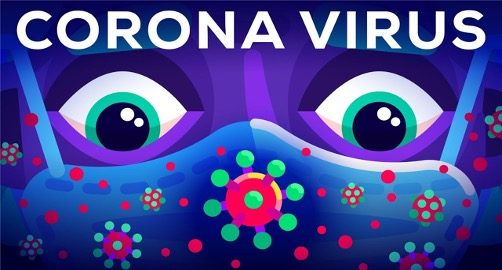
Covid-19 has taken its toll on the world, with more yet to come. Most, if not all, countries around the world have been affected by this vicious disease. Orkney and Ireland have both been impacted. This article will explore how the outbreak has affected a young person in Orkney (population – 22,000) and a young person in the Republic of Ireland (population – 4.9 million).
Brendan Mckee is in his last year of secondary school, and was set to do his Leaving Certs (final exams). He is 18 and lives in Ireland, Co Cork.
Leah: “When did lockdown begin for you?”
Brendan: “Lockdown Restrictions in Ireland started on the 12th of March.”
Leah: “Did any big events get cancelled for you? If so what?”
Brendan: “Yes, my band was to play at summer festivals such as ‘Independence’. All of our gigs were cancelled.”
Leah: “What happened with your job? Are you still getting paid?”
Brendan: “The barber shop I was working in was forced to close. Because I lost my job due to Covid-19, the Irish government pay me a welfare payment.”
Leah: “Were you meant to be doing Leaving Certs (final exams)? Has them being cancelled affected anything job wise for you?”
Brendan: “I was set to sit the Leaving Cert this year. The current plan is to have the exams on July 29th the original date was June 5th. However, there is still questions being asked regarding when the exams will be held.”
I asked the same questions to a young woman, who wishes to remain anonymous, living in Orkney. Unlike Brendan, she was not set to be sitting exams. (Lily is not her real name).
Leah: “When did lockdown begin for you?”
Lily: “Lockdown in Orkney began on the 20th of March.”
Leah: “Did any big events get cancelled for you? If so what?”
Lily: “Nothing too major has been cancelled for me yet. A few things that have been cancelled for me though are, Netball tournaments, Netball and Volleyball training, Volleyball tournament and our school Hoy trip. Our family summer holiday has not been cancelled yet, but I’m sure we will soon find out if it will be.”
Leah: “What happened with your job? Are you still getting paid?”
Lily: “I have a seasonal job so I hadn’t actually started working this year. I was set to start work around Folk Festival time and work right through to October, but the shop I work in was forced to close like most other shops. I am not getting paid as I hadn’t started work yet.”
Leah: “And finally, were you meant to be sitting exams? Has them being cancelled affected anything job wise for you?”
Lily: “I am not yet age to be sitting exams yet but I do know that exams throughout the UK have been cancelled. That is the first time in history they have ever been cancelled since they began in 1858, they even went on through the war times!”
As you can see, Ireland and Orkney are very different! In Ireland they are still set to be doing exams, they have just been arranged to a later date. In Orkney exams are totally ruled out. Ireland also went into lockdown a full week before Orkney did.
Zach Johnston
Children are growing especially bored because they cannot go anywhere or do anything.
David R. Laughton
During the Coronavirus outbreak, the majority of workers have been told they have to work from home. This is a very big setback for some businesses, and could cost lots of people their jobs. Other people have had to change the way they work by doing it online. This is true of David Laughton, who usually works in foreign countries for the oil industry.

David Laughton was due to start a job in South America but then travel restrictions were put in place. His company has now assigned him to start working from home until the outbreak restrictions are lifted.
David has been working in the oil industry for 23 years. He has worked in many countries on ships and offshore. The pandemic has changed the way David has had to work.
David said: “It will be a new challenge. I can hopefully use the experience in the future and I am glad the company is keeping me fully employed at this time. There will be initial online training and conference calls regarding my new work. My new work will be conducting audits and inspection on TMSA (Tanker Management Self-Assessment) forms that will now be completed online.”
David thinks the biggest challenge will be having to change his mindset: “I have been used to working away, and when I am home, I am home.” He will have to set times to get up, start work, take breaks and finish work. Otherwise, he thinks that it will be difficult to achieve his workload for the day and ignore distractions.
Once the restrictions are lifted, he hopes to return to working overseas but he is glad he is home now with the pandemic still present. If he wanted to change his work in the future, this experience could be beneficial in securing him other rolls.
Sarah Mehmi
Lynette Smith, aged 38, and 1 year-old son, Hugo, were diagnosed with COVID-19 on Thursday 2nd of April. Lynette and husband, Graeme, have three children, the youngest being Hugo. Continue reading to find out how this wonderful family coped and recovered from coronavirus.
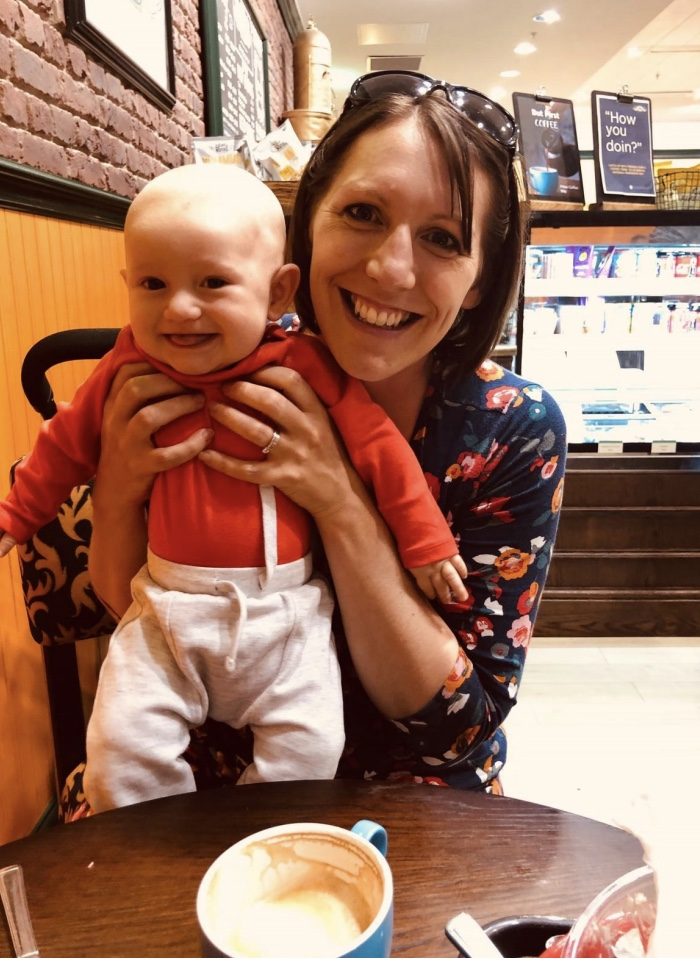
On Tuesday 24th March, Lynette’s colleague suddenly became extremely and acutely unwell. Lynette works for the NHS, and knowing lots of people with the symptoms of COVID-19, she wasn’t worried.
Then on 27th March, her sister’s birthday, her colleague had to take time off due to having Coronavirus. She was concerned, but told herself not to worry.
On Wednesday 1st of April, she realised how exhausted she was getting from doing the smallest of things and remained this way for the rest of the day. Then dramatically, 1 year old Hugo started screaming. He couldn’t stop screaming, nothing could calm him, and Lynette and Graeme became very concerned.
On Thursday 2nd of April, Hugo developed a rash all over his body. They rang the local GP.
After hearing the story, the doctor requested for Lynette and Hugo to come down to Accident and Emergency in the nearest hospital. From there they had to wait a long 8 hours waiting for a doctor. When the doctor finally called them, they took large samples of Hugo’s blood and then tested him and Lynette for COVID-19. Unfortunately, the results were positive.
“I was so sad when I found out. All you hear is bad news stories and deaths, but for us we were poorly for a period of time and we soon recovered,” said Lynette Smith.
The family had 4/5 days in bed due to the illness. On Tuesday 7th, Graeme became unwell too and the parents ended up having to change shifts for looking after the kids. Hugo’s older sibling, 8 year old James and 5 year old Daniel had a great time. Whilst their parents were sick, they ate all the sweets in the house. But they also played a key role in their recovery: they made dinner, looked after Hugo, and did all of the house chores.
On 9th April the family felt a lot better, but still very unwell for another week.It left Lynette with continuous chest pain for a fortnight and she apparently ‘slept more than she had in eight years’.
James and Daniel did feel slightly sick, but it was something that Calpol could fix. The most poorly was Hugo and Lynette out of the whole family, but it also mentally affected her parents. They were very upset, and having previous medical careers themselves, they were extremely worried about the consequences.
Lynette said the most difficult thing was herself and Graeme both being ill and having to take care of the family at the same time. One of the side effects of having Coronavirus for Lynette was that she lost all sense of taste and smell.
Lynette’s advice for anyone going through a similar situation is to not read the news, go to bed, take care of yourself, eat fruit and veg and vitamins, don’t lie on you back for long periods of time because that will worsen your lungs, and purchase a pulse oximeter. She found the pulse oximeter most helpful because it is really good for figuring out how unwell you are. You could feel well, but actually very sick. The pulse oximeter tells you whether or not you are. Also, rest, relax and de-stress, the worst thing you can do is stress.
Thankfully, the family are almost fully recovered more than a month later.
Matylda Kaluzinska
Multiple statements, released over the past few months, claim that lockdown has changed the environment rapidly, causing cleaner air and clearer waters. Due to Covid-19, citizens of nearly every country were instructed to stay in lockdown. This resulted in fewer workers driving and fewer people using public transport. Because of this fewer greenhouse gases were produced, making the air more breathable.
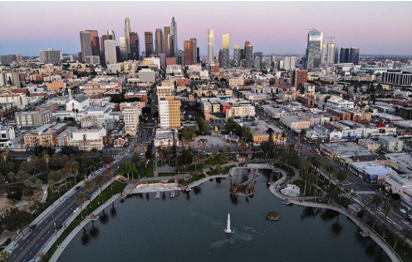
As the isolation continues, the skies clear up in Los Angeles and Beijing, the mountains are noticeable in Punjab and Nairobi, and breathable air is now heeded in Asia, Europe and North America. As the air took a turn for the better, the waters in Venice improved, leading to the return of aerial and aquatic animals.
Many researchers have concluded that Covid-19 was/is linked to polluted air. It is said that the spread of Covid went much faster due to number of countries having air filled with smog and fumes.
“The water now looks clearer because there is less traffic on the canals, allowing the sediment to stay at the bottom,” this an observation from a spokesperson of Venice, who told CNN on 8th of March.
As reported at edie.net, Prof Jonathan Grigg, from Queen Mary University of London, said: “Clearly, we urgently need more studies, since locally generated particle pollution will bounce back once the lockdown is eased.” Multiple studies made by students and scientists have shown that, in some cases, polluted air is linked with Covid-19.
Once Lockdown is over, people will go back to work or school using vehicles. Yet our new methods of working and fear of exposure may encouraged less travel in the future. Will the smoke and fumes return to the same extent? Is there really a good side to Covid?

Alex Scarth
Following on from NHS Orkney’s announcement last week that testing was now being done on the Island, rather than sent to mainland laboratories, there is now significantly more testing planned with much faster turn around times.
Previously, only patients admitted to the Balfour hospital or key NHS and social care workers could be tested. This made our local prevalence of Covid-19 look low. However many locals have come forward on social media to complain that they had been told they “likely had the virus” but that testing was not available to them.
Will the Scottish Government’s planned increased testing help to deliver more accurate statistics for Orkney?
NHSO, following advise from the Scottish Government, will now be swabbing symptomatic care home residents as well as new residents to care homes in the hope it will reduce the risk to our most vulnerable patients.
Patients being discharged from hospital will need two negative swabs before they can go to a care home bed.
Symptomatic care home staff, as well as other carers and NHS workers, continue to be able to get swabbed through the Covid Assessment Centre.
With Orkney being over ninety minutes from one of the four national drive through testing centres, increased testing will be achieved through testing kits being sent to patients and then posted to centralised laboratories. Though, NHSO, OIC, SAS, and third sector care staff will continue to be tested and processed locally.
The Government has also announced “Enhanced surveillances” swabbing, where health boards will be asked to swab set numbers of patients with mild or moderate symptoms to monitor disease prevalence. These kits will be processed centrally and not in the Orkney laboratory.
Will the increase in testing confirm the local suspicion that Orkney’s statistics do not reflect the true extent the virus is having locally? Or will it show that we continue to be lucky with low infection rates? Either way, as lockdown restrictions are lifted the risks will increase. The devastating effects the virus has had on our local economy and health will continue to affect us for years to come.
Local GP, Dr Sarah Stevenson, explained that: “Although numbers currently being seen locally are still low, we have been advised that we will not see our peak until mid May. Staff remain very thankful to members of the public who continue to follow the Government’s advice and maintain strict social distancing. Although numbers are low in Orkney, we must not start to be complacent.”
Scott Shearer
All of the citizens of Orkney, and the rest of the world, are currently stuck in their homes, because of the coronavirus crisis.
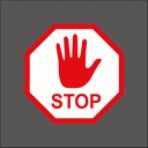
Because of the current coronavirus crisis, Orkney has come to a complete standstill. There are only few legitimate reasons to leave your home, these include: buying essential goods; exercise; going to work, only if you can not word from home.
Local, Carol Shearer commented that: ‘We are all happy to be home and safe’.
Ronnie Shearer, another local resident, commented that Coronavirus had meant that he had been forced to put up with his younger brother.
Coronavirus is not the first pandemic to have this effect: malaria, has killed almost half of all people who have ever lived on earth, meaning that over time, it has killed more people than any other cause.
Coronavirus is unlikely to kill as many as malaria. However, like malaria, it may continue to be a huge killer, especially in poorer areas of the world.
Coronavirus will likely continue to be a threat for some time. It has and will continue to impact the economy greatly. Shipping prices will increase, and more communications will be done remotely. Money will likely be transferred increasingly more online, and cash may become obsolete.
Gabrielle Shoesmith
The UK now has the highest number of Coronavirus deaths in Europe, according to the latest government figures.
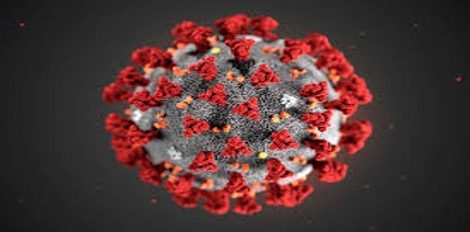
The UK has now got a bigger death toll than Italy and the worst death toll in the whole of Europe. There have been 29,427 deaths in the UK, and 29,315 in Italy according to government figures.
Both Italy and the UK record the deaths of people who have tested positive for Coronavirus. But each country has different testing regimes, with Italy conducting more tests than the UK to date.